NAWAMED: stakeholders in Lebanon discussed non-conventional water resources related technologies and barriers
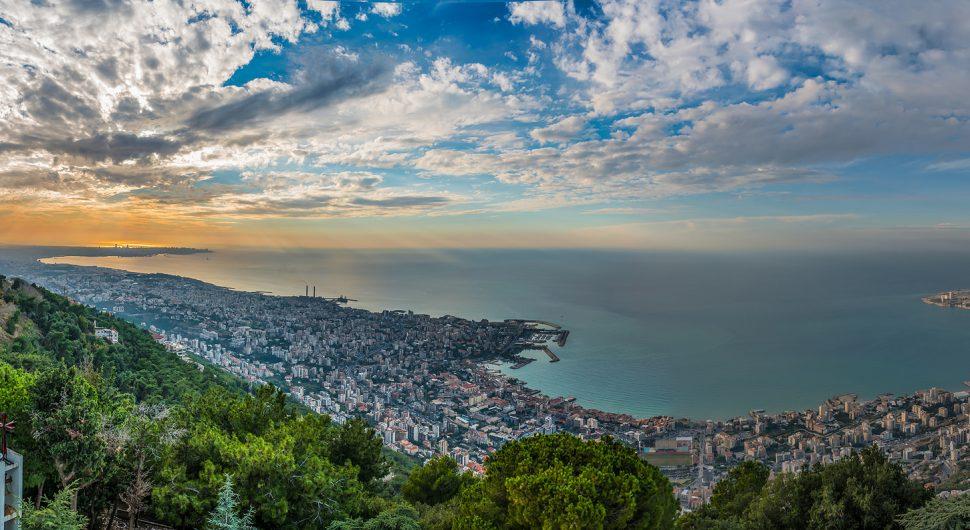
The American University of Beirut (AUB), NAWAMED project partner in Lebanon, under the coordination of Dr. Yaser Abunnasr, organized two consecutive “water tables”, stakeholders’ meetings, on July 28 and 29, 2021, gathering all interested stakeholders in water use efficiency using non-conventional water resources (NCWR). The aim addressed by participants was to identify and discuss the following themes:
- current and emerging water demand management (WDM) and NCWR technologies
- barriers for the uptake of WDM and NCWR in Lebanon
Stakeholders from various backgrounds, offices and disciplines of the water sector were invited and brought together in an organized way, to share thoughts and experiences, identify obstacles, and discuss the best approaches to move forward.
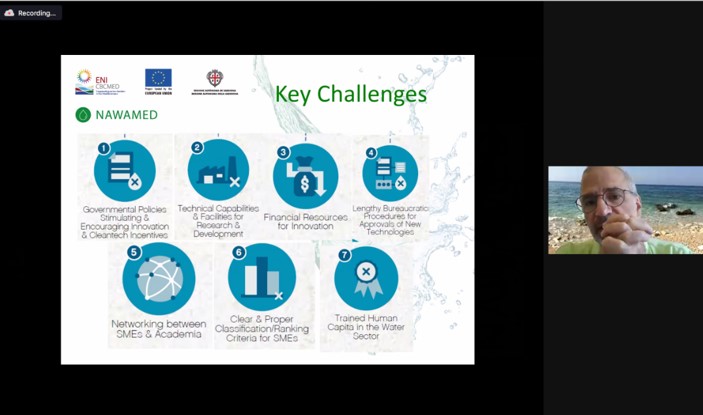
During these meetings, Dr. Nadim Farajalla, AUB co-project investigator, moderated the meetings around the targeted themes, while Dr. Yaser Abunnasr (AUB), introduced the overall project and its conjuncture and implementation in Lebanon. Invited speakers, such as Dr. Ahmad El Moll, from AQUACYCLE project (financed under the ENI CBC MED program) also gave a presentation titled “Treated wastewater as NCWR and its potential role in water management in Lebanon”.
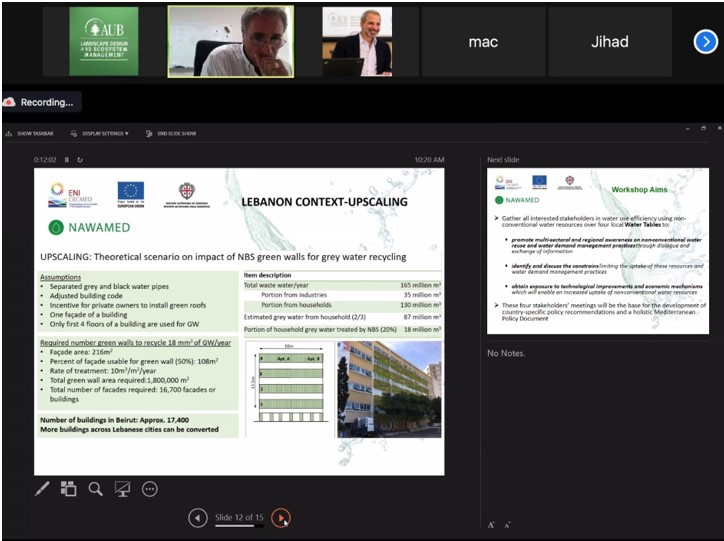
Dr El Moll explained the impact of climate change on water cycle in the Mediterranean region and its implications, the innovation of wastewater treatment to offer sustainable solutions which can be safely managed as an effective investment, and the use of treated domestic wastewater for farming irrigation using WebGIS as a tool to draw up action plans for the use of treated wastewater.
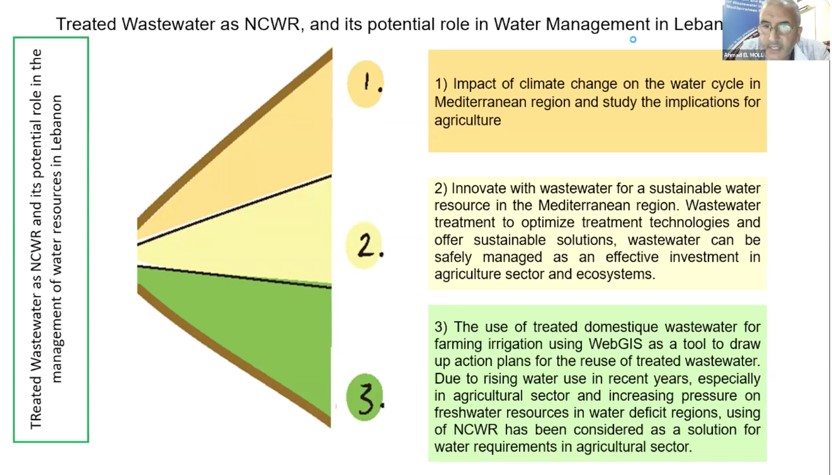
Due to rising water use in recent years, and increasing pressure on freshwater resources in water deficit regions, using of NCWR has been considered as a solution for water requirements in the agricultural sector
All participants, with different expertise from the private sector, local and international non-governmental organizations, ministries and public institutions, consultants, facility builders, and academics, brought forward their contributions and experience during the meetings, which were followed by fruitful panel discussions where stakeholders tackled the interlinked themes of current and emerging WDM and NCWR technologies, as well as the barriers in Lebanon.
Some of the productive exchanges of involved participants are quoted below:
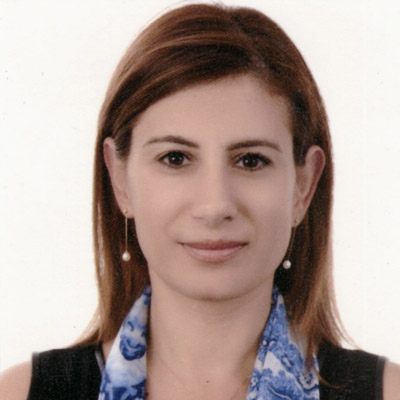
We need to consider the responsibility and accountability in properly following up on the maintenance; who would monitor the proper functioning other than the entity implementing the system. We have seen systems implemented and becoming a contamination source rather than a solution due to lack of maintenance. This is a risk to consider especially in our environment
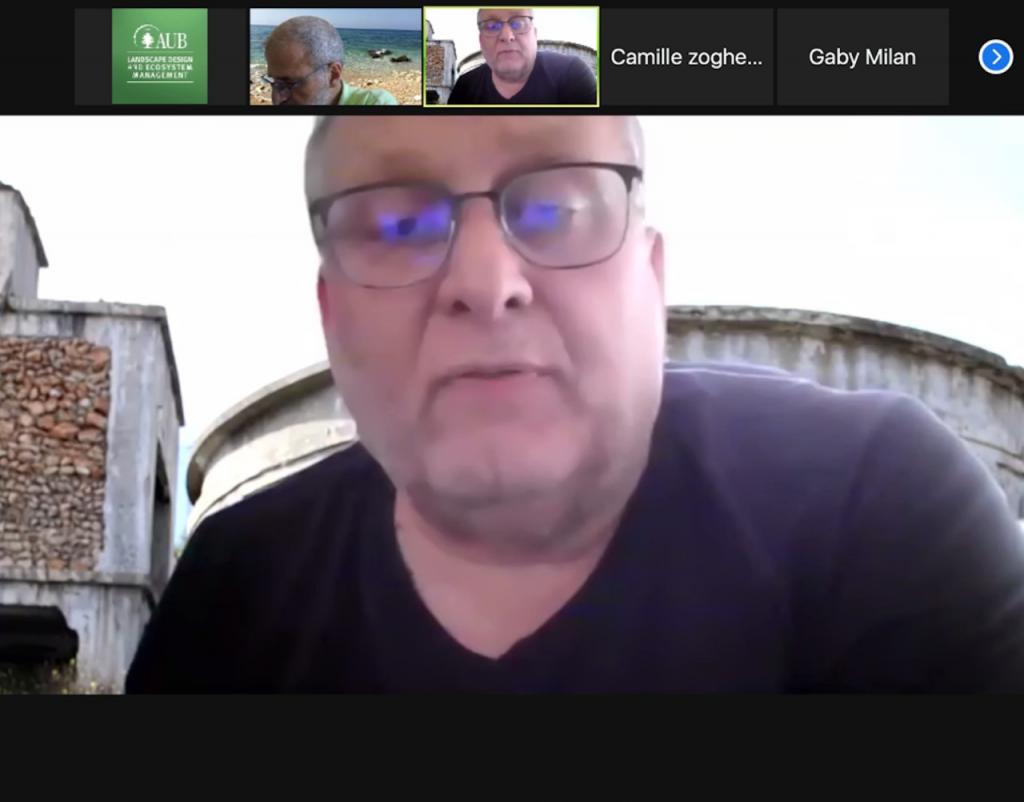
Based on our experience, we found that some of the big lacks is poor governance and community engagement. Most of policies were designed by private consultancy groups and inspired by government inputs to solve certain issues. This mechanism over the past 20 years hasn’t shown any feasibility nor efficiency
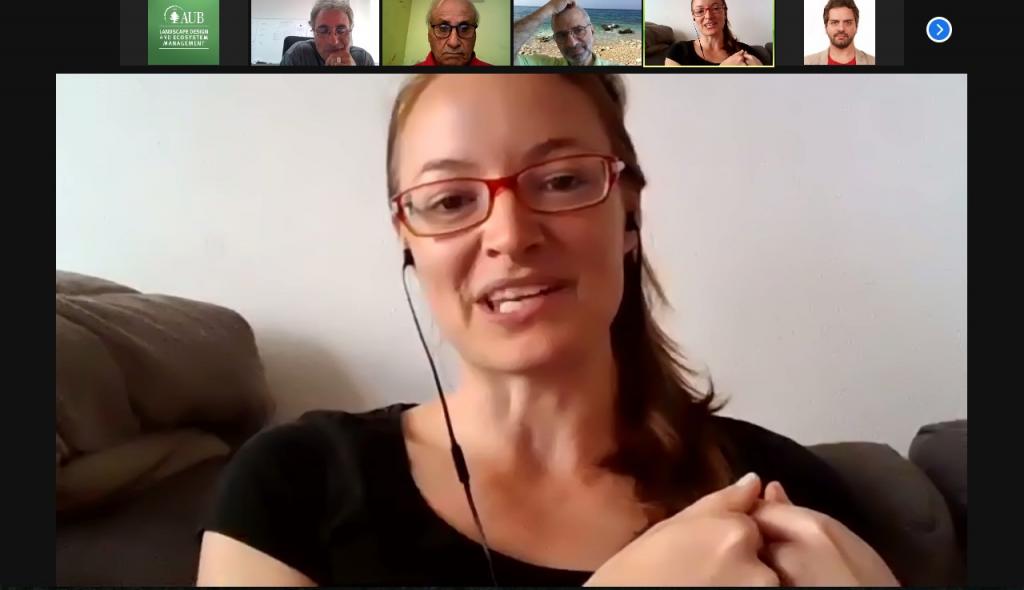
We need a policy and guidelines on the re-use and treatment of wastewater and sludge specifically now. Farmers are using untreated water to irrigate. Businesses with innovation and solutions exist and are on the ground in Lebanon and they are blocked by not being able to know what to do with the treated materials
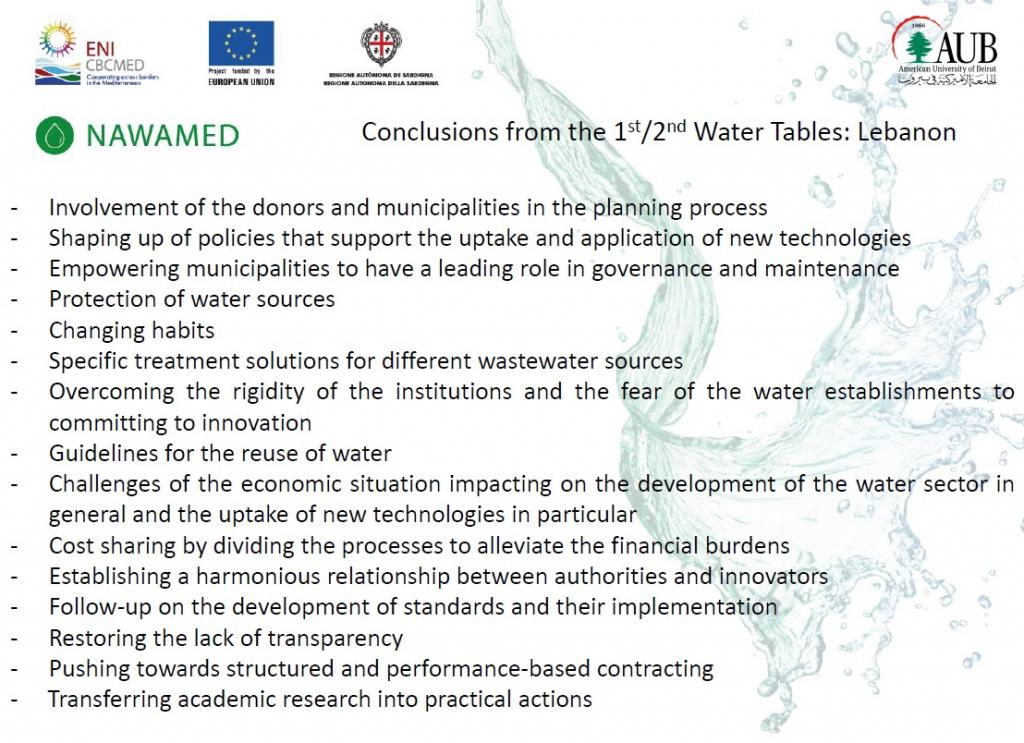
The outcome of these sessions together with the outcomes of the next 2 national stakeholders’ meetings (which will be held on August 11 & 12, 2021) through the feedback of participants, will be used to formulate final conclusions combining specific policy recommendations for Lebanon, which in turn will feed into the development of a “Mediterranean Policy Document” to support the increased adoption of WDM and NCWR at Mediterranean level.









